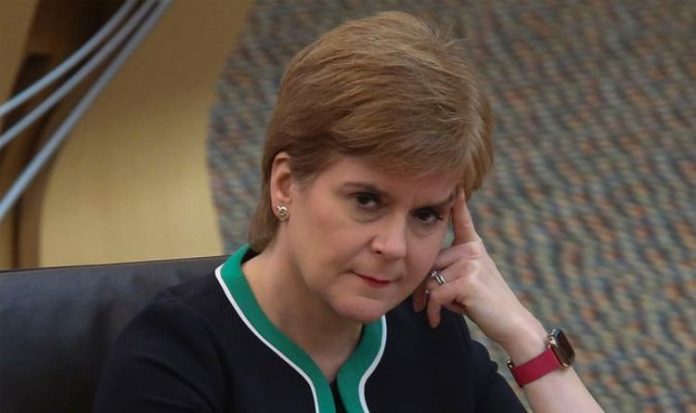The Scottish National Party (SNP) has pushed for a second referendum on Scottish independence, but have so far been rebuffed by Westminster. After the 2019 general election, in which the SNP won comfortably in Scotland, Nicola Sturgeon formally requested powers from Westminster to hold a second independence referendum – but the notion was firmly rejected by the Prime Minister Boris Johnson. Mr Johnson said in January: “You and your predecessor (Alex Salmond) made a personal promise that the 2014 independence referendum was a ‘once in a generation’ vote.
“The people of Scotland voted decisively on that promise to keep our United Kingdom together, a result which both the Scottish and UK governments committed to respect in the Edinburgh Agreement.”
The SNP then took the route of a Section 30 order – which allows Holyrood to pass laws in areas that are normally reserved to Westminster.
The case is before the Court of Session at the moment, where independence supporters are trying to establish whether Holyrood can legislate for a referendum unilaterally.
Ms Sturgeon will feel her case has been boosted by a record poll which was released last week.
The survey by Panelbase shows 55 percent in favour of breaking with the union, with 45 percent against – an exact reversal of the 2014 referendum result.
But despite a sustained growth in support of independence, public law expert Professor Aileen McHarg told Express.co.uk that this won’t necessarily change much for the SNP.
This is because, while the section 30 order remains in the Court of Session, Westminster still holds the power on when to call a vote.
Professor McHarg said: “The growth in support does not change the legal arguments. Either they have the power or they don’t – a mandate makes no difference.”
However, she also said that a perceived mandate could offer some encouragement nonetheless.
READ MORE: Nicola Sturgeon’s path to Indyref2 laid out as PM ‘powerless’
However, while the SNP’s legal argument doesn’t mean much just yet, Professor McHarg also highlights a flaw in Mr Johnson’s plan to stop a vote, as the “once in a generation” argument used by unionists may not work forever.
She continued: “What the UK Government are saying is that the SNP said the 2014 vote would be a once in a generation referendum, therefore we are going to hold them to that.
“The significance of any statement about it being once in a generation are highly dubious, and they have no legal standing.
“They are in no way legally binding – it’s unclear what a generation means, how long is a generation?
“It has some political plausibility, but the longer this goes on, the less you can rely on that line.
“It is very uncertain. A lot of this depends on public opinion in Scotland.
“If support for independence continues to grow, it will become much harder to hold the line for the UK government without significant discontent.”







